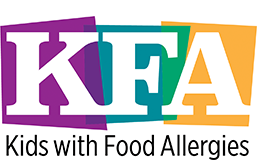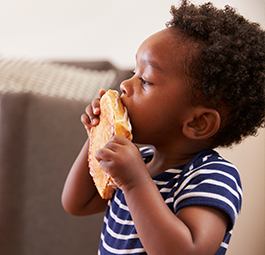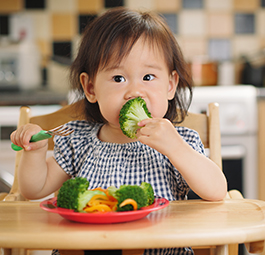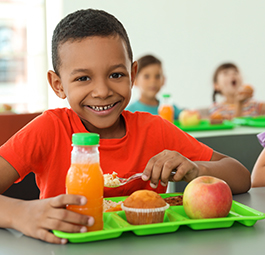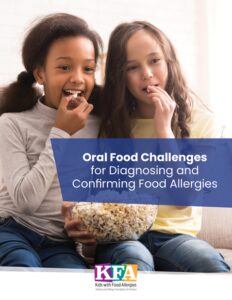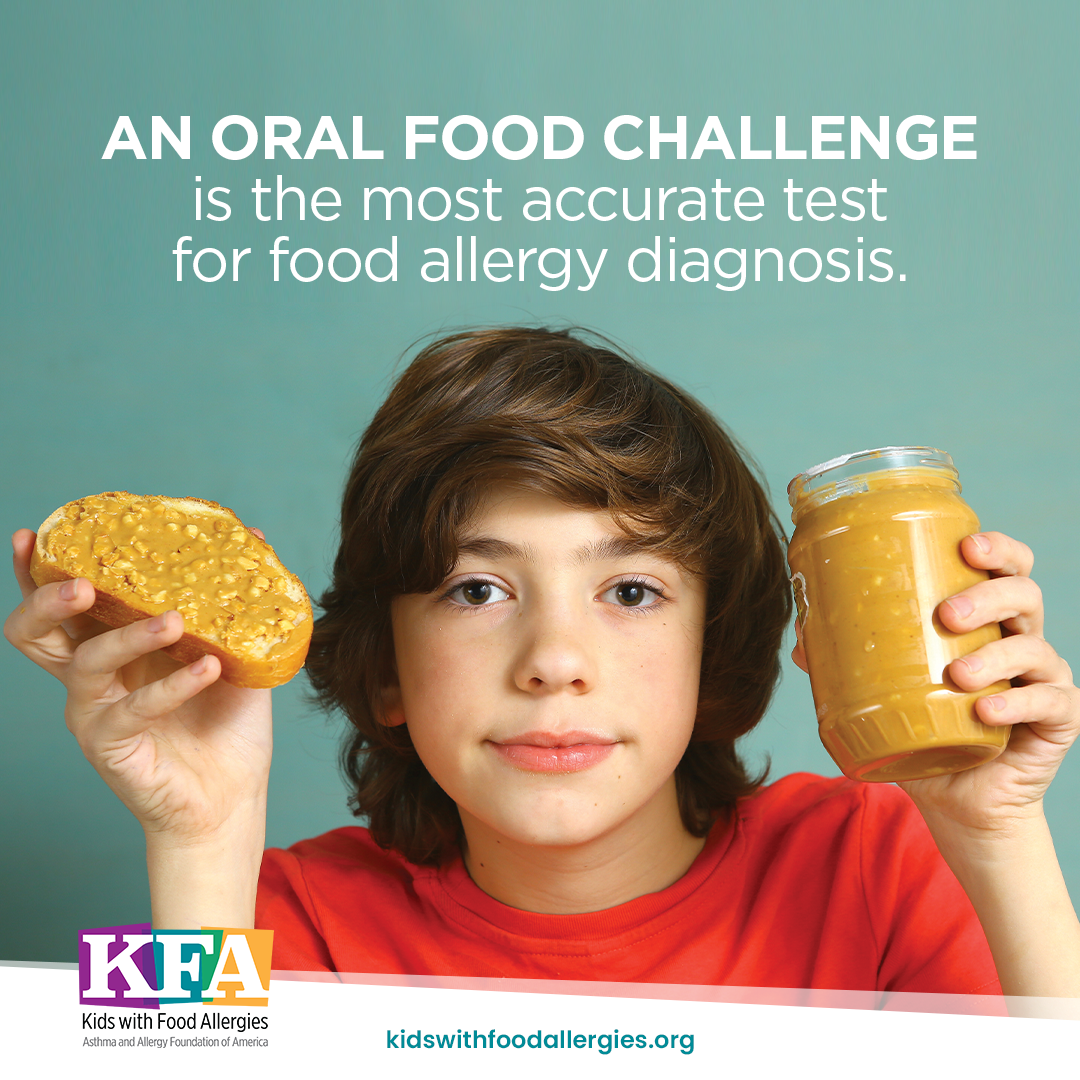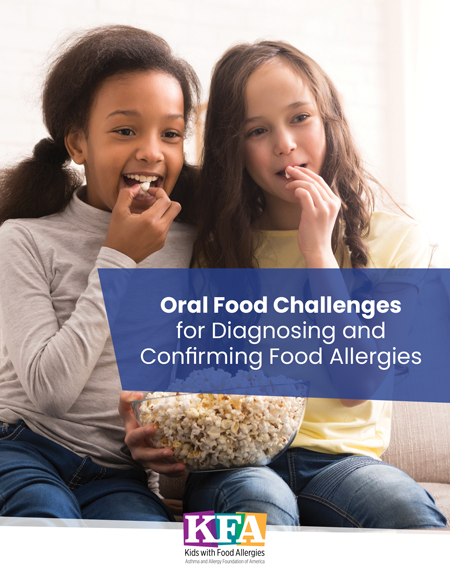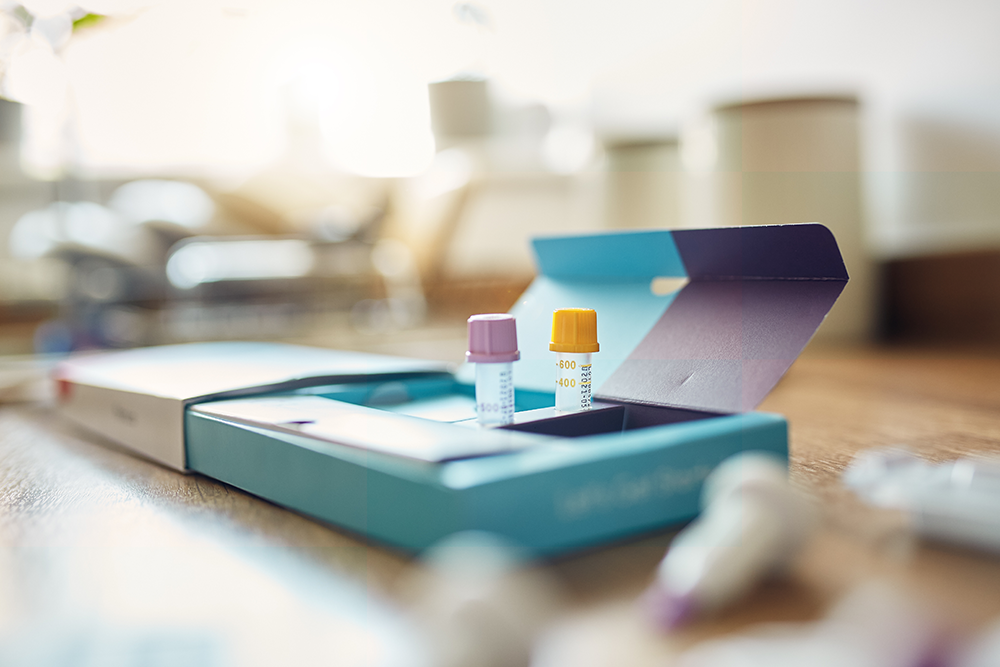Living with Food Allergies

Oral Food Challenges for Food Allergy Testing
Perhaps your child has had a known food allergy for some time, and now there’s reason to believe they may have outgrown it.
You may find the thought of a food challenge quite frightening. During this test, your child will eat the very food you believe may cause an allergic reaction. You may have a lot of questions: What will happen during the oral food challenge? What if my child reacts? What if my child refuses to eat the food? What do I need to do to prepare for the test? The blood test and/or skin prick test already came up positive — doesn’t that mean my child is allergic to those foods?
Knowledge is power! This article will address all of these questions and more so you will be able to approach an oral food challenge with confidence.
Closed
Getting an Accurate Diagnosis Is Critical
A diagnosis of a potentially life-threatening food allergy affects many aspects of a child’s and family’s quality of life. The many precautions that must be taken in order to avoid the allergen can be quite challenging and stressful. If the child is allergic to multiple foods, their diet must be carefully monitored to avoid malnutrition and the potential development of an oral aversion (the reluctance or fear of eating a food).
While handling all of this is quite doable – severe food allergies are safely and successfully managed by thousands of people every day – you should not avoid foods unless it is absolutely necessary. This means getting an accurate diagnosis is critical.
Oral Food Challenges Are the Gold Standard for Diagnosis
Many people mistakenly believe that food allergies are diagnosed based on skin and/or blood tests alone. Food allergy tests (blood and skin prick tests) help tell your allergist if your body recognizes a food protein. This, with a detailed medical history, can help rule out specific food allergies or diagnose food allergies. While they are useful parts of the diagnostic process, a positive result on one or both tests cannot diagnose a food allergy alone. It is common to have a positive test result but be able to tolerate the food.
The more important question is: Can your child actually eat the food safely? If your child can eat the food without developing any symptoms, then they are not allergic to that food. So, the oral food challenge – the “feed it to them in a clinical setting and see if they react or not” test – is the most accurate test available.
Please keep in mind, though, that your child must only have a food challenge under proper medical supervision. You should only do a food challenge at home if your allergist recommends it. (This will depend on your child’s history, their test results, the food involved, and your allergist’s experience and comfort level.)
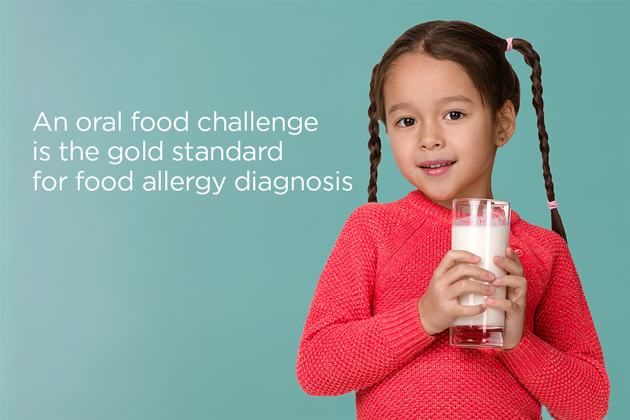
How the Clinic Staff Will Prepare You for the Food Challenge
Before scheduling the oral food challenge, you should be able to discuss this decision with your child’s allergist. The allergist should address all your questions and concerns. They should let you know the risks, benefits, range of outcomes, possible alternatives, and possible consequences of the choice. They will also most likely give you some printed material about the oral food challenge to review at home.
A member of the clinic staff – typically a trained allergy nurse – will then contact you prior to the scheduled test date. They will answer any questions or concerns you may have and go over important details with you.
How to Prepare Your Younger Child for the Food Challenge
For younger children (age 6 and under), you might find it helpful to do some role playing. For example, using words your child will understand, you can say: “You and I are going to go to the allergist’s office. You’re going to get to eat a little bit of [name of allergen] to see if your body is OK with it now. If everything is OK, you’ll then eat a little bit more and a little bit more.” You can then play it out at home, pretending to do the test using a similar, allergen-free food.
Answer any questions your child may have in clear, nonfrightening terms. Make sure your child understands you’ll be at the allergist’s office for a while, and let them feel like this will be a special time for the two of you to spend together. Some hospitals have child life specialists available to help with this process.
Download our Oral Food Challenges Guide to help you prepare.
How to Prepare Your Older Child for the Food Challenge
Let your child know you have scheduled the food challenge you discussed at their last allergist visit. Ask your child how they feel about the test. If they are worried, have your child write down the top five things that are making them feel anxious about doing the challenge. Go down the list and address each item one by one.
Never try to trick your child. Do not avoid discussing the challenge until the day of the test. Give your child time to emotionally prepare, and provide all the reassurance and straight-forward answers they need. It is normal for them to have some fear and hesitation about the test.
What to Do Before the Food Challenge
One to two weeks before the test: Most oral food challenges take about three to six hours. But, if your child has a reaction (especially if this reaction happens during the final dose of the test), you may be at the clinic even longer. Plan for you and your child to be at the clinic for the day. Make arrangements to miss work, school, and after school activities as needed. Plan for someone else to care for your other children that day.
Three to five days before the test: Based on the instructions from your child’s allergist, do not give your child any antihistamines (such as Zyrtec® or Benadryl®) or other medicines they specify for three to five days before the test. Ask your allergist for a list of medicines to avoid.
Day before the test: Reconfirm arrangements for your other children. Review the “What to Bring to the Food Challenge” section, and make sure you have these items on hand. Be prepared to bring the food your allergist will use for the challenge, if their office asks you to. Call the allergist if your child’s asthma or eczema is flaring.
Day of the test: If your child needs their quick-relief inhaler due to an asthma episode or attack on the day of the test, call the clinic to discuss if they are healthy enough for the challenge. If they are not having asthma or allergy symptoms, do not give your child any quick-relief asthma medicine (such as albuterol) or antihistamines “just in case.” Pack everything you need to bring. Check with your child’s allergy clinic team about whether your child should eat any food the morning of the scheduled challenge and follow the instructions they gave you.
What to Bring to the Food Challenge
Things for your child to do: Food challenges typically take three to six hours – sometimes longer. This is a very long time for a child to sit around in a medical clinic. Bring things to entertain your child, such as books, toys, paper and crayons, electronic devices, and other non-edible items. If your child is young, bring a favorite comfort item, such as a stuffed animal or “blanky.”
Change of clothes for both of you: You’ll want to have some clean clothes on hand just in case. (Some children may vomit.)
Foods to be challenged: Your allergist’s office will tell you exactly what to bring. Double-check portion size and cooking instructions.
Safe food for after the challenge: You and your child are likely to be hungry by the time the test is over. During the final waiting time, you might want a safe snack to share. Your child can probably drink water during the challenge.
Two epinephrine auto-injectors: Take two epinephrine auto-injectors to have with you on the car ride home. Check the expiration dates before the challenge to make sure they are current.
Any other items that your allergist recommends: Check the list they provide.
Your Child Must Be Healthy on the Day of the Food Challenge
In fact, your child must be 100% healthy for at least 24 hours before the food challenge too. They cannot be at the end of or coming down with an illness. This means no cold symptoms, no diarrhea, and no fever. If your child is not 100% well, the food challenge may be rescheduled.
If your child has asthma, the asthma must be under control, and they must not be in the middle of an episode or attack.
If your child has eczema, their skin must be stable too and not in the middle of a flare-up. This does not mean their skin must be clear, if it is not usually clear. It just needs to be “typical” – whatever this means for your child.
What to Expect During the Food Challenge
The following is a description of how oral food challenges might be done at food allergy centers in the U.S. Keep in mind that the protocols followed may vary. Here’s what you might experience:
- A high level of supervision: A nurse who has been specifically trained to manage oral food challenges will usually conduct the challenge under the supervision of an allergist. This nurse will either supervise your child’s food challenge or will supervise a few food challenges at once.
- A safe environment: In addition to close supervision from a trained nurse, an allergist will always be nearby and available. They will have emergency medicines (including epinephrine, albuterol, antihistamines and other medicines) on hand and ready.
- The use of measured, increasing (graded) doses: At the start of the challenge, the nurse will feed your child a tiny measured amount of the suspected allergen and observe them closely. The test generally does not start with a full serving! If no symptoms develop after 15 to 30 minutes, then they will give your child another slightly larger amount of the food. If things go well, they will repeat this process over the course of about three hours. The goal is to work up to a full serving size for your child’s age. Most protocols recommend about five gradually increasing doses.
- No forcing or tricks: The nurse who conducts the test understands that both you and your child may experience anxiety. They will use various methods to encourage your child to eat the food, but they will never force your child to do so. If your child absolutely refuses to eat the food, the nurse or allergist will stop the test and reschedule it for another time.All oral food challenges are done in a way that is appropriate for your child’s age and development.. The staff will not bribe or trick your child. And you should not bribe or trick your child. The nurse may mix the food with another food that is known to be safe to make it more appetizing. But, if your child is old enough to understand what is being done, then the nurse will tell them the allergen is there. Some challenges are done in a “blinded” fashion where a placebo is also used. This is only done with your full consent.
- No other food given during the test: During the food challenge, your child will be allowed to have water and the food or beverage that is part of the test. If your child refuses to eat the food, the allergist or nurse may mix it in or combine it with another safe food.
What Foods Are Commonly Challenged?
Oral food challenges are usually done using the actual food itself, such as:
- Dairy: milk (or chocolate milk, yogurt or ice cream if your child refuses milk)
- Heated milk: specific baked recipe that contains milk thoroughly heated
- Eggs: scrambled egg and/or French toast
- Baked eggs: specific baked recipe that contains thoroughly heated eggs
- Grains: cooked grains, baby cereals, baked goods (using a specific recipe), or flour which is mixed with a safe food, such as applesauce or pudding
- Peanuts and tree nuts: nut butter, specific nut, flour or nuts ground to a flour consistency and mixed with a safe food
- Soy: plain or flavored soy milk, tofu
- Fish: a cooked piece of the actual fish
- Shellfish: a cooked piece of the shellfish your child is allergic to
Strategies to Make the Foods Less Scary for the Child
A child who has spent years learning to avoid a food may be understandably scared by the thought of being given that particular food. There are many things you can do to help make the test less frightening. Depending on your child’s age, the possibilities include:
- Using your child’s familiar sippy cup from home
- Using your child’s own dishes and silverware from home
- Mixing liquids with a safe liquid your child enjoys
- Feeding your child an allergen-free version of the food at home for a few weeks prior to the test to help them get familiar with the food’s look, taste, texture, and consistency
- Serving nut butters spread on a favorite cracker or piece of bread
- Serving the food with ketchup, syrup, or another safe and familiar condiment
Many parents or caregivers experience anxiety before or during their child’s food challenge. It is important to acknowledge these worries and talk about them with your child’s allergist. It is also important not to let your child know about your anxiety or to shift your worries onto your child.
What Happens If My Child Has a Reaction?
A consent form should explain that a reaction may occur. It should also outline possible treatments for a reaction. The clinic staff will be prepared to provide appropriate treatment for any reaction that may occur. Depending on the severity of the reaction (for example, two hives versus more severe symptoms), treatment can mean anything from stopping the test and observing your child to giving epinephrine.
If it is appropriate, the allergist may allow you and your child to be involved in the treatment process (such as using the epinephrine auto-injector, etc.), if office or hospital policy allows. The doctor will stop the food challenge. Depending on the severity of the reaction, they will have you and your child stay another hour or more for observation. If a reaction does occur, the treatment your allergist uses in the office may differ from your emergency anaphylaxis action plan. This is normal. Your child will be under the direct supervision of a highly trained allergist.
A Reaction Can Also Be a Learning Opportunity
There are no bad outcomes from a food challenge. Challenges that end in a reaction should not be viewed as negative. It confirms your child’s allergy to the food and reinforces the need to continue to avoid it. For older children who don’t remember their last allergic reaction, experiencing it can be an excellent opportunity for your child (and you!) to see what a reaction feels like and how it is treated. Plus, it can be an opportunity for your family to participate in treating the reaction.
These are all valuable experiences that can help empower your child and family. Many parents fear they cannot treat a reaction if one were to occur, that their child could not be treated if they had a reaction or feel the smallest exposure would trigger a reaction. A challenge that ends in a reaction may dispel these and other concerns, which can help greatly improve quality of life and reduce anxiety.
Of course, a reaction can be a terrible disappointment for both you and your child. Help your child to see the experience in a positive light and not as a failure. Take care with your word choices and do not refer to the test as a “fail.”
What Happens If My Child Does Not Have a Reaction?
Once the test is complete, the nurse will observe your child for another one to two hours. If all is well, this means your child is not allergic to the food! The doctor will send you home with specific instructions on how to add this food to your child’s diet. Your allergist may recommend a schedule for introducing the food and how often to keep the food in your child’s regular diet.
Although not all children will become eligible for a food challenge, your child’s doctor should offer a food challenge when appropriate. The oral food challenge is the gold standard in food allergy diagnosis. It is a valuable tool in managing a child’s real or suspected food allergies.
An oral food challenge is optional. If you or your child are uncomfortable, you do not have to do it. It is your allergist’s role to explain the risks and benefits of the procedure. The allergist should have you sign a written consent form to note your discussion and that you agree to the procedure, the method and how it will be performed. Your or your doctor can stop the procedure at any time.
Quality of life issues impact families of children who have food allergies in a variety of ways. Food challenges can help your child’s doctor manage the allergies based on better information about the presence and severity of the allergy, increasing the quality of life for all involved. If a challenge goes as hoped, then this will expand their diet and add a variety of new options.
Medical Review: January 2020 by Matthew Greenhawt, MD, Michael Pistiner, MD, MMSc, and David R. Stukus, MD
